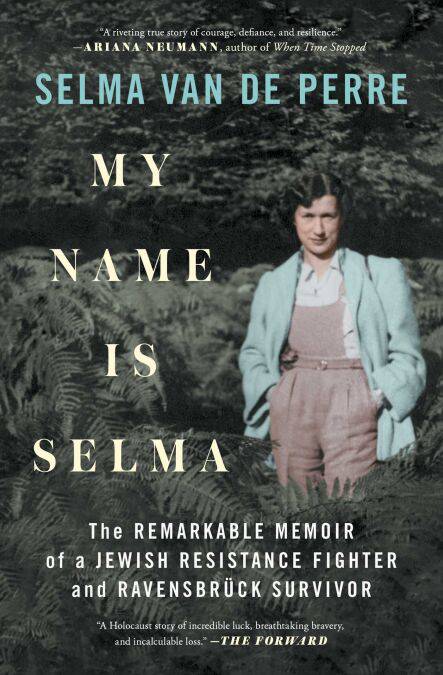
- Afhalen na 1 uur in een winkel met voorraad
- Gratis thuislevering in België vanaf € 30
- Ruim aanbod met 7 miljoen producten
- Afhalen na 1 uur in een winkel met voorraad
- Gratis thuislevering in België vanaf € 30
- Ruim aanbod met 7 miljoen producten
Zoeken
My Name Is Selma E-BOOK
The Remarkable Memoir of a Jewish Resistance Fighter and Ravensbrück Survivor
Selma van de Perre
E-book | Engels
€ 15,65
+ 15 punten
Uitvoering
Omschrijving
An international bestseller, this powerful memoir by a ninety-eight-year-old Jewish Resistance fighter and Holocaust survivor “shows us how to find hope in hopelessness and light in the darkness” (Edith Eger, author of The Choice and The Gift).
Selma van de Perre was seventeen when World War II began. Until then, being Jewish in the Netherlands had not been an issue. But by 1941 it had become a matter of life or death. On several occasions, Selma barely avoided being rounded up by the Nazis. While her father was summoned to a work camp and eventually hospitalized in a Dutch transition camp, her mother and sister went into hiding—until they were betrayed in June 1943 and sent to Auschwitz. In an act of defiance and with nowhere else to turn, Selma took on an assumed identity, dyed her hair blond, and joined the Resistance movement, using the pseudonym Margareta van der Kuit. For two years “Marga” risked it all. Using a fake ID, and passing as Aryan, she traveled around the country and even to Nazi headquarters in Paris, sharing information and delivering papers—doing, as she later explained, what “had to be done.”
In July 1944 her luck ran out. She was transported to Ravensbrück women’s concentration camp as a political prisoner. Unlike her parents and sister who she later found out died in other camps—Selma survived by using her alias, pretending to be someone else. It was only after the war ended that she could reclaim her identity and dared to say once again: My name is Selma.
“We were ordinary people plunged into extraordinary circumstances,” she writes in this “astonishing, inspirational, and important” memoir (Ariana Neumann, author of When Time Stopped). Full of hope and courage, this is Selma’s story in her own words.
Selma van de Perre was seventeen when World War II began. Until then, being Jewish in the Netherlands had not been an issue. But by 1941 it had become a matter of life or death. On several occasions, Selma barely avoided being rounded up by the Nazis. While her father was summoned to a work camp and eventually hospitalized in a Dutch transition camp, her mother and sister went into hiding—until they were betrayed in June 1943 and sent to Auschwitz. In an act of defiance and with nowhere else to turn, Selma took on an assumed identity, dyed her hair blond, and joined the Resistance movement, using the pseudonym Margareta van der Kuit. For two years “Marga” risked it all. Using a fake ID, and passing as Aryan, she traveled around the country and even to Nazi headquarters in Paris, sharing information and delivering papers—doing, as she later explained, what “had to be done.”
In July 1944 her luck ran out. She was transported to Ravensbrück women’s concentration camp as a political prisoner. Unlike her parents and sister who she later found out died in other camps—Selma survived by using her alias, pretending to be someone else. It was only after the war ended that she could reclaim her identity and dared to say once again: My name is Selma.
“We were ordinary people plunged into extraordinary circumstances,” she writes in this “astonishing, inspirational, and important” memoir (Ariana Neumann, author of When Time Stopped). Full of hope and courage, this is Selma’s story in her own words.
Specificaties
Betrokkenen
- Auteur(s):
- Uitgeverij:
Inhoud
- Aantal bladzijden:
- 224
- Taal:
- Engels
Eigenschappen
- Productcode (EAN):
- 9781982164690
- Verschijningsdatum:
- 10/05/2021
- Uitvoering:
- E-book
- Beveiligd met:
- Adobe DRM
- Formaat:
- ePub

Alleen bij Standaard Boekhandel
+ 15 punten op je klantenkaart van Standaard Boekhandel
Beoordelingen
We publiceren alleen reviews die voldoen aan de voorwaarden voor reviews. Bekijk onze voorwaarden voor reviews.







